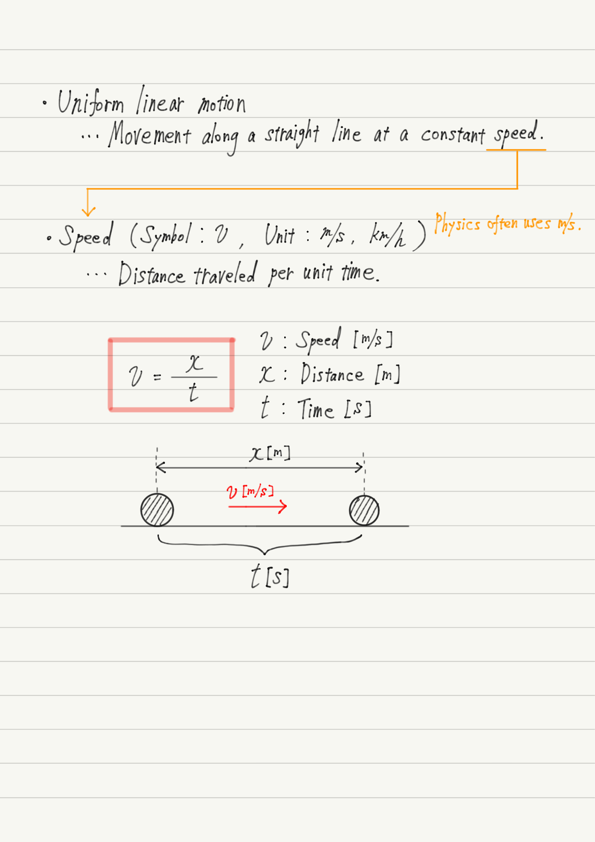Uniform Linear Motion
The first topic in mechanics is uniform linear motion. Since this is the same content that was learned in junior high school, let’s review it starting with the basics.
What is uniform linear motion?
Uniform linear motion is, as the name implies, motion in a straight line with constant speed.
Frankly speaking, we do observe uniform linear motion in our daily lives, such as a car traveling at a constant speed on a straight road.
However, it is rare for the wind to maintain a constant direction and speed. What is important in physics, however, is to start with the simplest model before dealing with complex phenomena. In other words, uniform linear motion is the foundation of all the motions we will learn from now on!
Let’s now summarize the concept of “speed” in motion.
Summary of this lecture

An important aspect of the definition of speed is that it is based on time.
In most cases where speed is measured, the distance is determined first and then the time is measured, as in track and field events. The person who covers the specified distance in the shortest time is the fastest.
In physics, however, time is determined first and then the distance is measured. The person who covers the greatest distance within the specified time is the fastest. Understanding the difference between these definitions is crucial for accurate calculations.
Next lecture preview
In the next lecture, we will learn about graphs of uniform linear motion.

